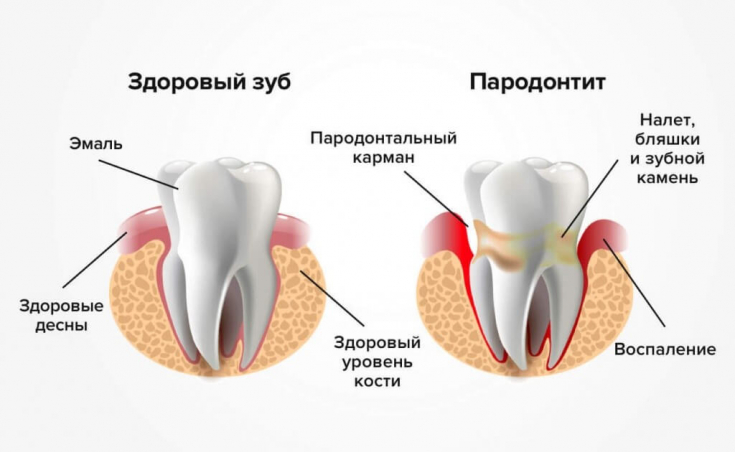Hypertension is the most important risk factor for the development of cardiovascular disease (CVD).
Arterial hypertension (AH) is defined as systolic blood pressure (BP) ≥140 mmHg. Art. and/or diastolic BP ≥90 mmHg. Art.
Almost 45% of the world's population suffers from hypertension, and these figures are increasing every year.
The incidence of adverse cardiovascular events such as stroke, myocardial infarction, sudden death, heart failure and peripheral arterial disease, as well as end-stage chronic kidney disease, is directly related to the presence of arterial hypertension in a patient.
How related are periodontal diseases and pathology of the cardiovascular system, read the article on estet-portal.com .
- The role of periodontitis in the structure of dental pathology
- Research on the relationship between periodontitis and CVD diseases
- Blood pressure readings in the presence of periodontitis in historyze
The role of periodontitis in the structure of dental pathology
According to a World Health Organization (WHO) report, hypertension accounts for 51% of stroke deaths and 45% of total cardiovascular deaths, and this applies to all ethnic and age groups.
Follow us on Instagram!
BP is an important predictor of cardiovascular risk.
Despite the available treatments, essential hypertension is still uncontrolled in most patients.
And this is one of the main risk factors for CVD, which needs urgent correction.
Periodontitis − chronic inflammatory-dystrophic disease of the periodontium, a complex of tissues, which include the bone tissue of the alveolar process and periodontium.
The disease is estimated by WHO to affect more than 50% of the world's population, and its severe form is considered the sixth most common disease of mankind.
Periodontitis is a major health problem that significantly increases the incidence and costs of dental care.
Main cause of inflammation − own microflora of the oral cavity, which is capable of spreading by the hematogenous route.
Botulinum toxin use in oral surgery
Numerous studies have shown that periodontitis is associated with an increased risk of developing CVD, regardless of the classic risk factors for development such as smoking, obesity, and the like.
The interaction between bacterial microflora and host response is the primary mechanism that links periodontitis to a number of chronic systemic diseases such as diabetes mellitus, CVD, neurological diseases.
Research on the relationship between periodontitis and CVD
Numerous studies testify about the relationship between periodontitis and arterial hypertension, but there is no data on the mechanism of development.
A team of researchers from the Department of Periodontology, Eastman University of London Institute of Dentistry, London, UK, therefore, decided to analyze past research data.
The main goal was to make a clear critical assessment of the evidence for an association between periodontitis and hypertension.

After analyzing 81 studies involving more than 250,000 patients, the researchers concluded that patients with moderate inflammatory periodontal disease had a 22% risk of high blood pressure, while patients with more severe forms had a risk of increasing blood pressure of about
Scientists found that people with periodontitis had an average 4.5 mmHg higher systolic blood pressure. Art., and diastolic − at 2 mm Hg. Art. compared to patients who had healthy gums.
The five studies analyzed noted that with active treatment of periodontitis
blood pressure tended to decrease.
Moreover, pressure indicators also decreased in patients who did not have a history of arterial hypertension.
Teeth whitening in dentistry: types of methods and their features
Today, the relationship between periodontitis and arterial hypertension, as well as atherosclerotic lesions of the arteries, the occurrence of strokes and other cardiovascular complications, is increasingly confirmed.This is evidenced by more than 50 recent studies.
However, it is still unclear whether gum disease is a marker or mediator of such disorders.
If the relationship is identified and the causes are identified, this will be of great importance, since there will be an additional opportunity to significantly reduce the risks of CVD through routine
prevention of chronic inflammatory periodontal diseases.







Add a comment